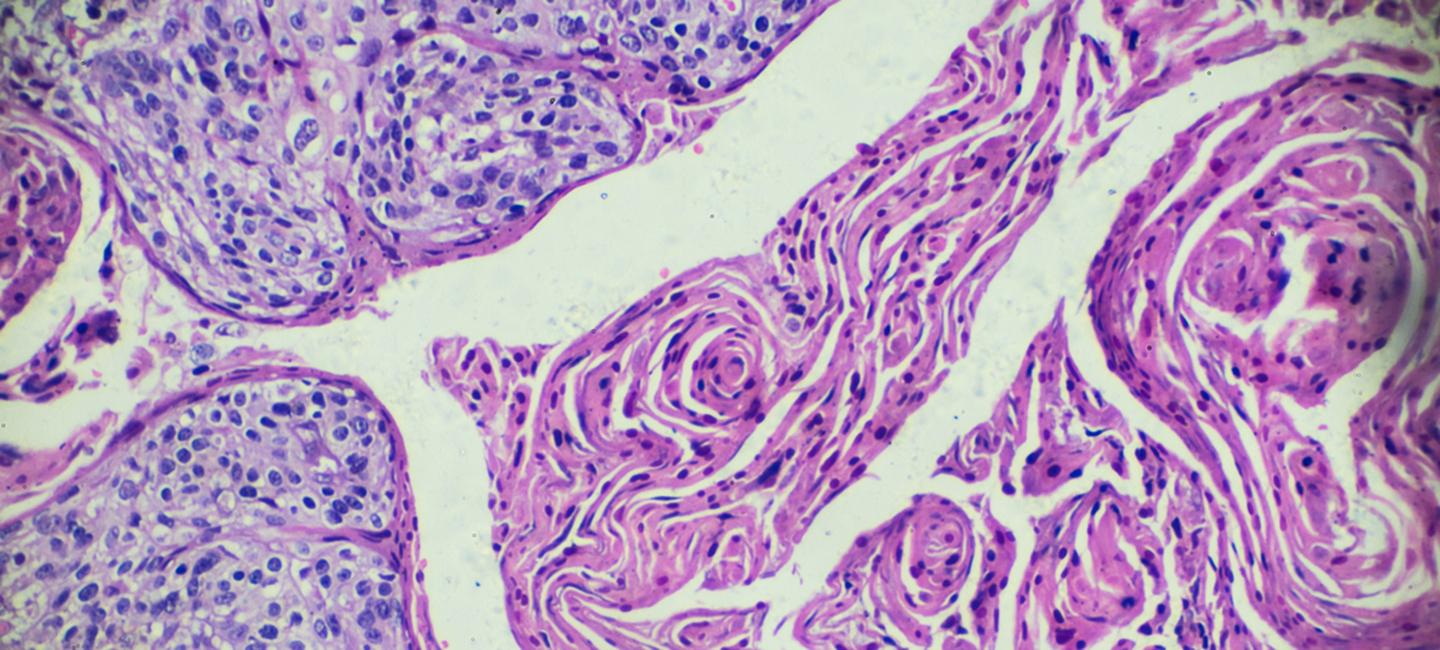Moffitt Clinical Trials Offer Hope for Cervical Cancer Patients
When Kimberly Curran was diagnosed with cervical cancer in 2016, her best option was to go through chemotherapy and radiation treatments, followed by brachytherapy to surgically deliver high-dose radiation treatments aimed at killing the cancer cells.
It’s a tough regimen. “I was in the worst shape I’d ever been,” she recalled of that time. But regular CT scans showed no trace of cancer for two years.
Last year, when two small lesions spotted on her lung were confirmed as metastatic cervical cancer, Curran feared she’d be put back on chemo and radiation. “I would have refused treatment,” she said. Instead, her gynecologic oncologist Dr. Hye Sook Chon suggested a clinical trial being offered at Moffitt Cancer Center. Curran enrolled and has been receiving immunotherapy infusions every three weeks for almost a year.
“This clinical trial has changed my life completely,” said Curran. “I’m living a normal life.”

Dr. Kamran Ahmed, assistant member in Moffitt’s Department of Radiation Oncology and a member of Moffitt’s Immunology Program
Heading up this clinical trial is Dr. Kamran Ahmed, an assistant member in Moffitt’s Department of Radiation Oncology and a member of Moffitt’s Immunology Program. He explained that immunotherapy is now a cornerstone in the management of many different types of cancer including certain types of cervical cancer. “Studies have revealed that radiation therapy can improve the response rates for immunotherapy,” added Ahmed. “This novel trial at Moffitt studies the use of focused, high dose radiation therapy with the immunotherapy, atezolizumab, to see whether radiation can improve the response rate to immunotherapy and ultimately improve treatment outcomes for metastatic, recurrent, or persistent cervical cancer.”
In Curran’s case, the immunotherapy and subsequent radiation therapy have stabilized one of her lung lesions. The other has completely disappeared. Said Curran, “I can’t help but wonder if everyone on this trial feels so good.”
It’s just one example of Moffitt’s efforts to expand options for cervical cancer patients through clinical trials. Other trials of note include:
- A multicenter, open label interventional study of a treatment approach called TIL therapy. This study extracts immune cells from cervical cancer tumors that have spread beyond the patient’s original cancer site. These cells, called tumor infiltrating lymphocytes or TILs, are then grown and multiplied in a laboratory before being infused back into the patient to attack the cancer. The study has had promising early results, including some patients who have had an apparent complete response.
- A randomized trial for cervical and vaginal cancers using a treatment called triapine in combination with standard therapy (cisplatin and radiation therapy). Unfortunately, treatments for solid tumors, including cervical and vaginal cancers, are not satisfactory at this time and the need for more satisfactory treatments are in high demand. Triapine is a treatment targeted against a specific molecular pathway that is present in cancer cells. Patients will be randomized to either triapine plus cisplatin and radiation therapy or cisplatin and radiation therapy alone. The primary objective of the trial is to determine if the addition of triapine to the current standard of care therapy will improve progression-free survival in patients with newly diagnosed cervical and vaginal cancers. Patients are still being enrolled on this trial.
- A randomized, multicenter treatment trial investigating agents that work with the body’s immune system to fight and control cancer. The study will assess the effectiveness of a treatment called AGEN2034 as a single therapy or in combination with AGEN1884 in patients with advanced cervical cancer who have relapsed or progressed after receiving first-line platinum-based chemotherapy. AGEN0234 is an anti-PD-1 agent and AGEN1884 is an anti-CTLA-4 agent. PD-1 and CTLA-4 pathways have been identified as targets for therapy development. Inhibiting these pathways has already been shown as successful in several other clinical trials; patients with solid tumors have had objective clinical responses and increased survival rates. Moffitt will participate in phase 2 portion of this trial, along with approximately 70 other sites globally.
For more information on clinical trials offered at Moffitt, visit www.moffitt.org.


